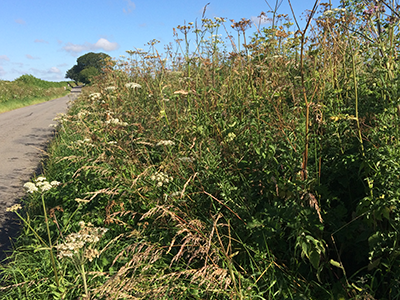
Some of these cookies are necessary to make the site work. We’d also like to use optional cookies to help improve your experience on the site. You can manage your optional cookie preferences below. Using this tool will set a cookie on your device to remember your preferences. Your preferences can be changed at any time.
For further details, see our Cookie Policy and our Privacy Policy
Essential cookies enable core functionality such as page navigation and access to secure areas. The website cannot function properly without these cookies; they can only be disabled by changing your browser preferences. Third party functions such as Google Search and Analytics will not be enabled.
Performance settings enable you to use the Google Search engine on our website and help us to improve our website by collecting and reporting information on its usage (for example, which of our pages are most frequently visited).
While our other air quality webpages and the wider available information rightly focuses on public health, we also want to highlight the negative impacts air pollution can have on the natural environment.
Air pollution can negatively affect natural habitats, ecosystems and processes, and plants and animals. Serious environmental impacts of air pollution occur as a result of nitrogen deposition, acid deposition and direct toxic effects of pollutants in the air. Ozone can be toxic to plants and contributes to smog in cities which can harm wildlife and domestic animals.
Over the last two decades, UK emissions of nitrogen oxides have fallen by about 70%
due to measures to control air pollution, although there have only been small decreases in ammonia emissions. Despite these welcome reductions, deposition of both reduced and oxidised nitrogen to the UK has not declined as rapidly because of changes in atmospheric processing (1).
Nitrogen deposition is the term given when reactive nitrogen pollutants emitted to the atmosphere are transferred to land and water bodies, either as a gas (dry deposition) or in precipitation (wet deposition).
In the UK, the two main forms of atmospheric nitrogen pollutants are nitrogen oxides NOx (which includes Nitrogen Dioxide) and ammonia NH3.
Nitrogen oxides are emitted from the burning of fossil fuels mainly from power stations, factories and transport emissions in particular diesel engines, whereas the main source of ammonia is from agriculture.

Nitrogen in air pollution acts as a fertiliser, making conditions too rich for many wild fungi and plants. That's one of the reasons why you're more likely to see mile after mile of cow parsley and nettle which are nitrogen-tolerant species on our rural highways, road verges and field margins. But what you often won't find is large variety of wildflowers that 30 to 40 years ago decorated these same roadside verges. This has negative consequences for animals, including pollinating insects, that depend on wild fungi and plants for food, nutrients and shelter (1).
Increased levels of nutrients in watercourses encourage plant growth, which can lead to problems such as algal blooms which reduce light and oxygen levels. This process, known as eutrophication, affects ecosystems, killing fish and altering plant communities (3).
Nitrogen deposition also damages the growth of lichens, which are very sensitive to air pollution. They are recognised worldwide as useful indicators of air quality (1).
These impacts can be a serious threat to protected habitats and conservation areas (4) and affects us all as biodiversity is vital to our health and wellbeing, our culture and our economy.
 or OPAL Air Survey
or OPAL Air Survey  .
.(1) https://www.plantlife.org.uk/uk/our-work/publications/we-need-to-talk-about-nitrogen 
(2) https://royalsociety.org/~/media/policy/projects/evidence-synthesis/Ammonia/Ammonia-report.pdf 
 Back to Top
How to get here
Back to Top
How to get here
